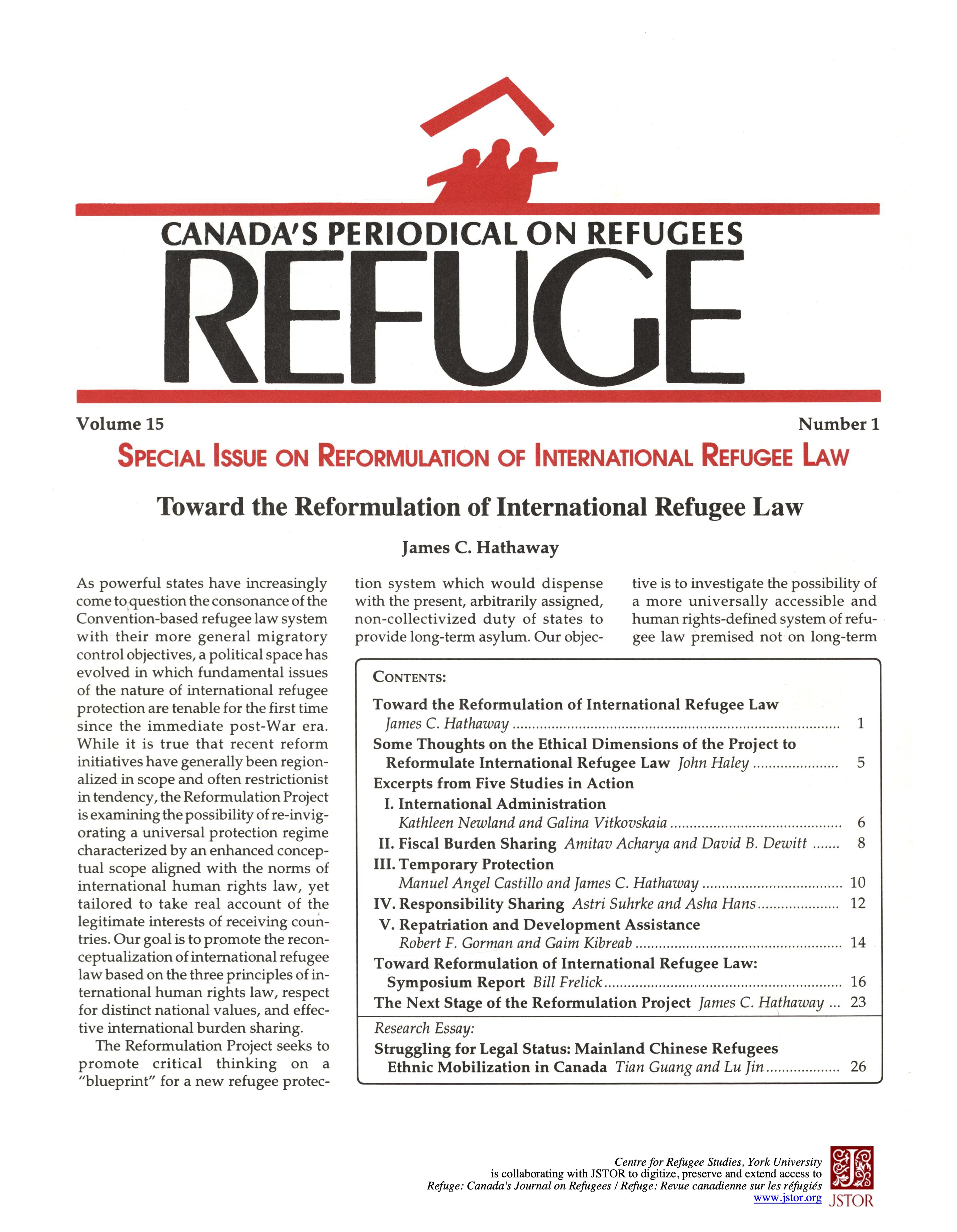Struggling for Legal Status: Mainland Chinese Mobilization in Canada
DOI :
https://doi.org/10.25071/1920-7336.21869Mots-clés :
legal status, Chinese immigrants, policy, Canada, IRB, Mainland Chinese rejected refugee, collective behaviour theory, fearRésumé
Between the end of 1993 and the spring of 1994, about 5000 Mainland Chinese rejected refugee (MCR) claimants mobilized themselves in Canada to lobby the Canadian government to make a special policy for them so that they could be considered for landed immigration status. The mobilization, launched by the Mainland Chinese Refugee Organization (MCRO), won wide sympathy and support from the Chinese community and mainstream society in Canada. The MCRs stated their goals and demands through Chinese ethnic media and mainstream media, started a dialogue with the Canadian government and even staged a protest in front of the Parliament Buildings in Ottawa. On July 7,1994, the Minister of Citizenship and Immigration Canada issued a policy, known as the Deferred Removal Orders Class (DROC) program, designed for claimants in similar situations. In this paper, we examine the process of the movement, analyze its features, and discuss its effects on the Chinese diaspora community in Canada. The movement emerged out of the 'fear" of a group of Chinese claimants, caused by the threat of being deported from Canada. The success of the movement was based on the mobilization of ethnic and social resources by the MCRO.Statistiques
Téléchargements
Publié-e
Comment citer
Numéro
Rubrique
Licence
© Tian Guang, Lu Jin 1996

Cette œuvre est sous licence Creative Commons Attribution - Pas d'Utilisation Commerciale 4.0 International.
Les auteurs qui publient dans Refuge conservent le droit d’auteur associé à leur œuvre, et octroient au public une licence Creative Commons Attribution - Utilisation non commerciale 4.0 International. La licence permet l’utilisation, la reproduction et l’adaptation du matériel avec attribution par tous moyens et sous tous formats pour des fins non commerciales. Pour des informations générales sur les licences Creative Commons, visitez le site Creative Commons. Pour la licence CC BY-NC 4.0, consultez le résumé lisible par l'homme.







